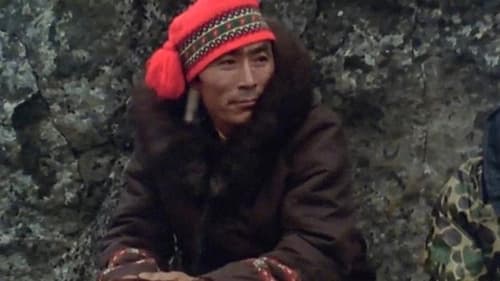
Director
This feature documentary profiles an Aboriginal community coming to terms with a legacy of sexual abuse, incest and family violence. The film follows the Ditidaht First Nation over a seven-year period, after a respected elder is found guilty of sexual assault. Award-winning filmmaker Maurice Bulbulian records the community's stories, becoming a part of their healing process. With the hope and courage of participants, the powerful interviews in this film play a key role in helping the community overcome the cycle of abuse. The continuing, devastating effects of the residential school system are also revealed; in this system, physical, emotional and sexual abuse were all too often routine.

Director

Writer

Director
Dancing Around the Table: Part Two charts the battle to enshrine Indigenous rights in the Canadian Constitution, capturing a key moment in Canada’s history from the perspective of Indigenous negotiators. The 1985 conference, chaired by Prime Minister Brian Mulroney, was the fourth and final meeting to determine an amendment to Indigenous rights as defined in the Constitution. The provincial premiers again refuse to reach an agreement with the First Nations, Metis and Inuit leaders, even though the majority of Canadians supported the inclusion of Indigenous rights to self-government. Director Bulbulian captures the pride and determination of Indigenous leaders and community members who refuse to back down on this historic opportunity to enshrine their rights, and the arrogance of the First Ministers who are fighting to keep power within the federal and provincial governments.

Director
Dancing Around the Table: Part One provides a fascinating look at the crucial role Indigenous people played in shaping the Canadian Constitution. The 1984 Federal Provincial Conference of First Ministers on Aboriginal Constitutional Matters was a tumultuous and antagonistic process that pitted Prime Minister Pierre Elliot Trudeau and the First Ministers—who refused to include Indigenous inherent rights to self-government in the Constitution—against First Nations, Inuit and Métis leaders, who would not back down from this historic opportunity to enshrine Indigenous rights. The conference was Pierre Elliott Trudeau’s last constitutional meeting before he resigned and the process was handed over to his successor, Brian Mulroney.

Director
Made in collaboration with the Inuit Tungavingat Nunamini, this film focuses on those dissident members of the Inuit community who rejected the agreement signed on November 11, 1975, between the Northern Quebec Inuit Association, the Québec and federal governments, the James Bay Energy Corporation, the James Bay Development Corporation, Hydro-Québec and the Grand Council of the Crees, which took away Native rights to a territory of almost one million square kilometres. By their words and actions, the dissident Inuit of Povungnituk, Ivujivik and Sugluk express their strong desire to retain their land and their traditions. The filmmakers go into their homes, on the ice and the sea to record first-hand the lives of these northern people.

French-Canadian Director
A budding Scottish film producer tries to get his ambitious Aberdeen-set western financed, and while he attracts some major stars and directors to the film he finds that with their support come more and more script changes... Filmed around the 1977 Edinburgh Film Festival, Long Shot is a deadpan satire about the trials and tribulations of British independent filmmaking, with terrific cameos from Wim Wenders, Susannah York, Stephen Frears, Alan Bennett and John Boorman.

Director

Director

Director

Editor
"This film is one of the first French Unit productions of the “Société Nouvelle/Challenge for Change” program. When an old area of Montréal is to be demolished to make way for a new low-income housing development, is there anything the residents can do to protect their own interests? The film documents such a situation in the Little Burgundy district of Montréal and shows how the residents organized themselves into a committee that successfully influenced the city’s housing policy." - Anthology Film Archives

Director
"This film is one of the first French Unit productions of the “Société Nouvelle/Challenge for Change” program. When an old area of Montréal is to be demolished to make way for a new low-income housing development, is there anything the residents can do to protect their own interests? The film documents such a situation in the Little Burgundy district of Montréal and shows how the residents organized themselves into a committee that successfully influenced the city’s housing policy." - Anthology Film Archives






